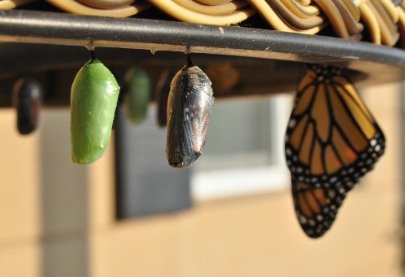Change is Loss and Loss is Change 2 – The Sequel.
February 8, 2024

BY KEN BARRINGER
(Part 1 was May 2021)
Where were you when you got the news? Who did you hear it from? What was your initial reaction, and did you have any variability of emotion (anxiety, relief, uncertainty, disbelief)? What memories came to mind? Was there anything you got nostalgic about? Anything you just wanted to wipe from memory? What was the weather like when you got the news? What were you wearing?
Yes, these are questions I may ask someone when they found out an important person in their life died. However, these were the questions I asked people when they found out COVID restrictions were lifted in Massachusetts back in May 2021.
Change is loss and loss is change. We may have an affinity for the expression, “change for the better” yet there are elements of loss that come with that change. We are not a culture that does well with uncertainty. Sometimes we dig in our heels to avoid having to change things. We often prefer predictability and familiarity. Even if they’re “not good” they are predictability and familiar and we know what to expect. The ‘change for the better’ includes a loss of what is known. We might grieve this, even though it doesn’t make sense. Why would we feel some pangs of grief for a situation that is getting better? You don’t feel it for the situation that’s getting better, you feel it for the situation that changed.
It's tempting, and convenient, to minimize and overly normalize changes in our life. “It’s part of life”, “happens to everyone”, “part of the deal for living”. There is no disputing the truth in these quotes. However, what we may not know are people’s stories and how impactful this change was. What other changes have occurred in their lives? Perhaps most importantly, we don’t know what their attachment was to the thing that changed. Maybe it was a change they were, or were not, hoping for. An important factor in how effectively someone can adapt and grow is their attachment to their story. We like the known. The known becomes part of our identity and how we make sense of what is going on. There is some empowerment with the known. Change threatens the known.
The grief reaction and response to change may not be prolonged, may flitter in and out, may have a short shelf life – but we can’t bypass its existence. When we do bypass it any unfinished business that we transitioned away from will come with us into the new experience.
It’s often, accurately, stated that change is the only constant in life. We need to acknowledge that it impacts us. With acknowledgement we can go forward into the new space fully alive. Lack of acknowledgment can put us into disenfranchised grief mode limiting our new experience. Let’s leave room to acknowledge all our feelings – whether they be joy or jitters.